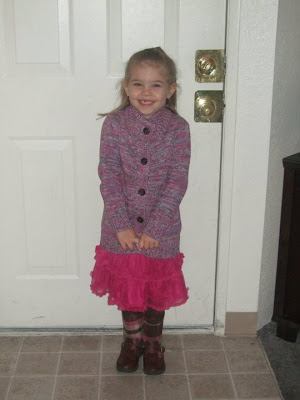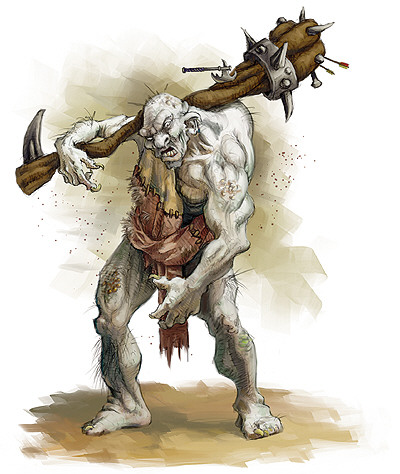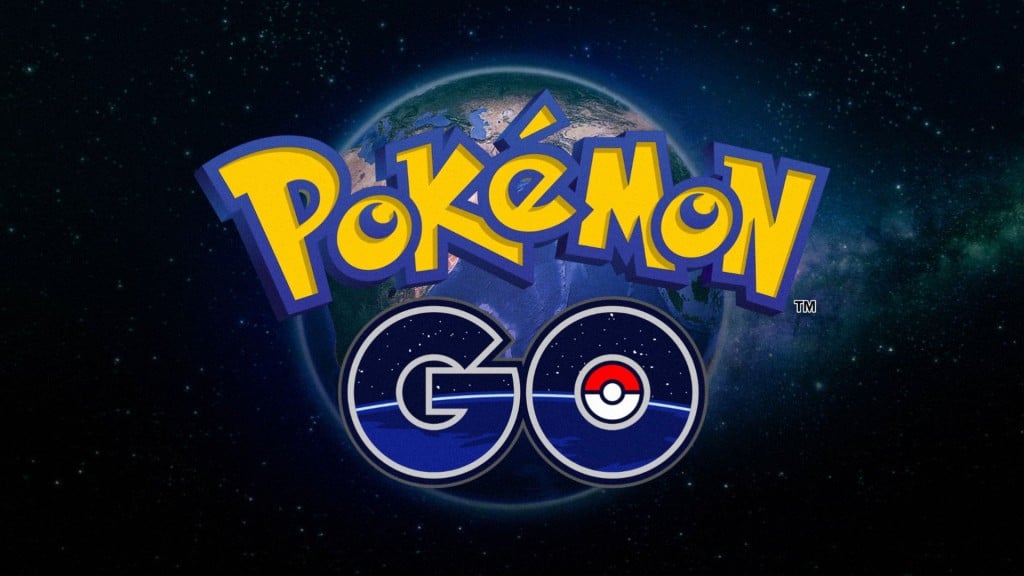Sienna has a sweater that makes me sad. It’s a really pretty sweater that my mom bought for her this year at Old Navy. Here’s a picture of her in it:
For some reason, this sweater reminds me of sweaters from the 40’s. Specifically, every time I button it around her, I think of little children who died in the Holocaust.
I realize this is a bizarre association, and I can’t explain where it came from. I don’t know if it’s the big buttons, the coarse fabric, or the multiple colors, but it reminds me of a sweater that someone would make for a child out of scraps. A sweater made from anything and everything a mother could find, sewed by candlelight with numb fingers by a mother desperate to have something that would keep her child warm against the rapidly approaching winter.
Every time I put this sweater on Sienna I feel a wave of sadness. I think of the many mothers throughout the centuries who have clothed their children, and of all the mothers who have suffered the tragedy of losing children, but especially of those mothers, the ones who were helpless to save their children or themselves from the evil of the last century.
It seems that there is a collective fascination with the Holocaust. We are drawn to it, drawn to the history of that time. I’ve spent hours poring over articles about Treblinka and Auschwitz, horrified and yet unable to stop reading. Is there something in us that can’t believe it actually happened? Is there some part of us that must prove it to ourselves, that must bring ourselves to face the utter depths of depravity that humanity is capable of?
I think that’s part of it. But there’s something else, too, at least for me. The Holocaust was never as real and as poignant in my understanding until I had children. All those lives lost didn’t compute. Who can fathom six million? Who can understand that many, so many souls snuffed out? I certainly couldn’t. But then I had children of my own, and suddenly the monstrosity of the concentration camps took on a whole new meaning, because just this one life, this one little girl, she was everything. She was my world, a child into whom I poured more love than I realized I could feel. A child whose cough could stop my heart, whose cry could make my blood run cold. And every single person who was killed was that, if not to anyone on earth, to God in heaven.
When I think of the mothers with their children, smashed into the cattle cars, desperate to soothe and feed and give comfort and with no recourse to do so, I can hardly bear it. I’ve stood in the shower and held Charlotte in my arms under the running water and thought of all those mothers in the gas chambers, clinging to their naked children, shivering and half-mad with panic. I’ve sat in bed and nursed Liam and thought of the mothers in Treblinka whose babies were drowned as soon as they were born.
How could they bear it? It’s almost merciful that most of them didn’t live long. How can you bear the pain of a lost child, especially one lost to violence?
And how could God allow it to happen? I know the problem of evil has been hashed out again and again, and I’ve come to an answer myself that satisfies my intellect, at least. I believe that God can’t stop evil from happening because He’s given us free will, and He won’t take that gift from us, no matter how it’s abused. But that answer certainly doesn’t satisfy my soul, especially when such mass evil is concerned.
Some people have said that the Holocaust was allowed to happen because of the good that came out of it; not only the political restructuring, but the saints whose lives have become such an inspiration. But that doesn’t satisfy me either. It seems such a little bit of good next to the millions of children murdered, their mothers and fathers standing helplessly by, powerless and frantic.
I’ve often thought that the entire country of Germany was to blame for allowing this to happen. But a documentary about the Rise of Nazism was on last night, and it made me realize that they didn’t…really…know. They might suspect, but the Nazis went to great lengths to keep them in the dark. A German woman who accidentally boarded a train to Treblinka with her two children, a woman whose husband was a Nazi, fighting in the war, was gassed just the same because she had seen too much. But even if they had known, what could they do? Any attempt at revolt was snuffed out, and brutally. Were they culpable for standing idly by, keeping their noses to the ground while their countrymen were murdered in droves? I think so.
And then, I ask myself, what does that say about me? After all, in this country babies are murdered by the thousands every day. I’m against it, of course, but I don’t do anything about it. I just take care of my children and vote for politicians who stand against it. That’s all I can do, I tell myself.
But it’s not enough. It’s not enough, in the face of evil, to passively disagree. Millions upon millions of babies have been brutally murdered and dismembered simply because they are inconvenient, and here I am, saying, “Oh, well, you really shouldn’t do that, but after all, there’s nothing I can do to stop it.” I am reminded of, indicted by, the well-known quote by Martin Niemoller:
“In Germany they first came for the Communists,
and I didn’t speak up because I wasn’t a Communist.
Then they came for the Jews,
and I didn’t speak up because I wasn’t a Jew.
Then they came for the trade unionists,
and I didn’t speak up because I wasn’t a trade unionist.
Then they came for the Catholics,
and I didn’t speak up because I was a Protestant.
Then they came for me –
and by that time no one was left to speak up.”
There must be something. I’ve felt for a while that I must do something, but I genuinely have no idea what. In principle I’m somewhat opposed to the culture of protest, so picketing abortion clinics is out for me. Should I stand across the street and pray? With my children in tow? I have my own pro-life story; should I tell it? How much to these stories really help?
I’m asking you, my readers, because I genuinely don’t have answers. I feel that every day I stand by silently as babies as precious as my own are torn from life I grow more and more culpable. When we ask forgiveness for things we have failed to do, this is always the first thing that I think of. By just standing here, doing nothing, I am failing to act. I am failing to protect these children just as surely as the mothers in the concentration camps failed to protect their own, and yet I am free to act. I am free to try, at least.
Where do I start?











